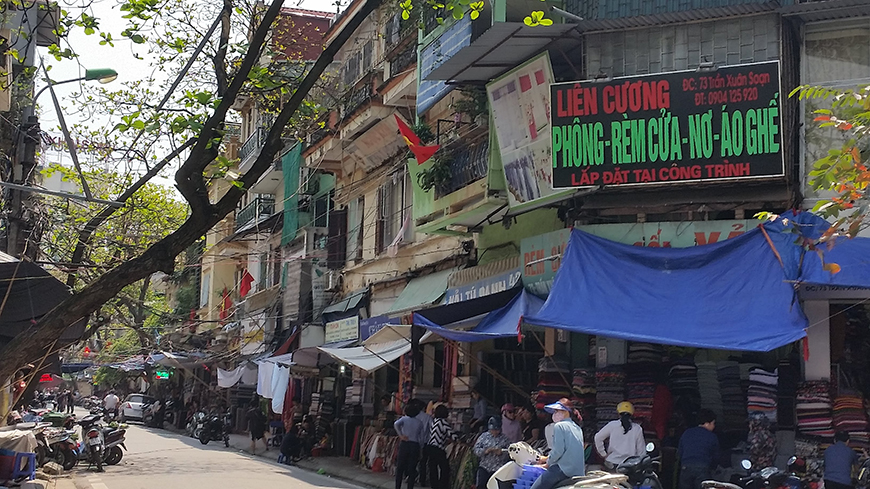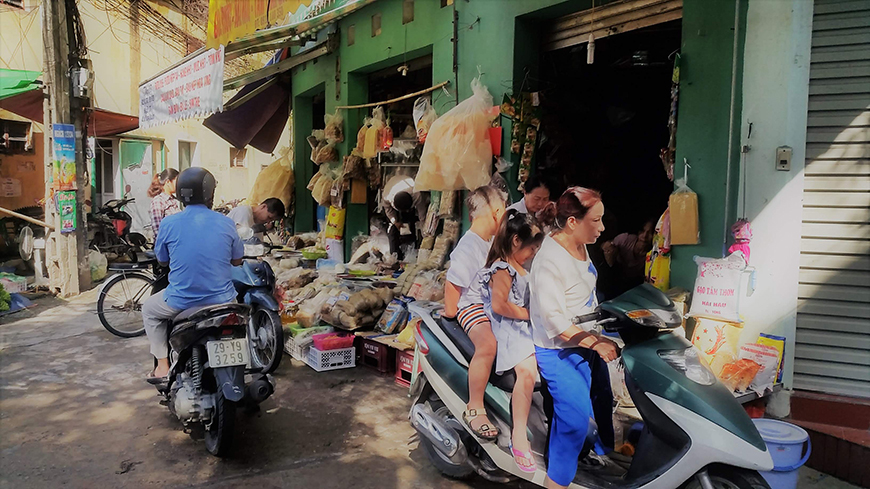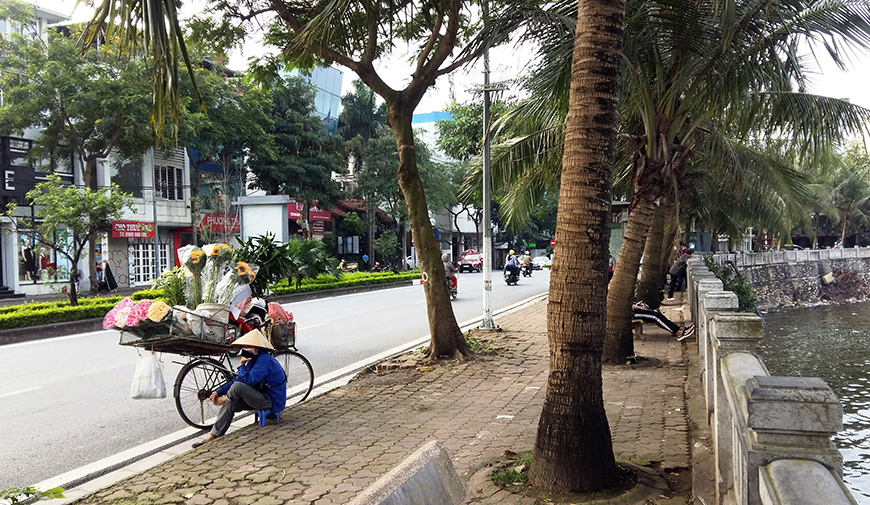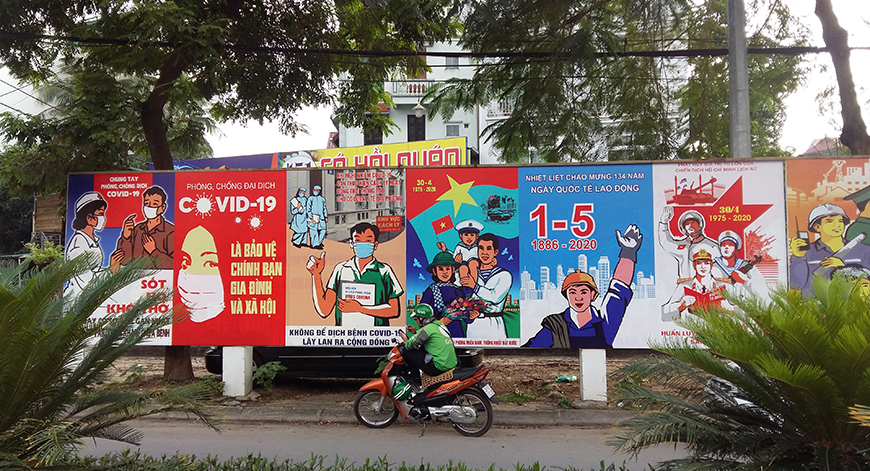Dreaming of getting lost in the bustling streets of Hoi An or savoring a delicious pho in Ha Noi? Perfect! But before embarking on your adventure, equip yourself with some key phrases that will help you navigate like a pro.
Why learn Vietnamese?
Simply because it's the key to living an authentic experience. And let's admit it, it's always impressive to be able to order a cold beer like a local, chat with a market vendor, or simply ask for directions. While Vietnamese may seem complex with its tones and unique pronunciation, the locals are always delighted to assist foreigners who make an effort to speak their language.

Learning vietnamese is the key to living an authentic experience - Source : Mr Linh's adventures Team
Basics to avoid standing out like an alien
- • Greetings: Start with a simple "Xin chào" (sin tchao) to say hello. And if you're not feeling confident, immediately say: "Tôi không nói tiếng Việt giỏi" (toi khong noi tieng viet zoy) which means "I don't speak Vietnamese well".
- • Thank you: A sincere "Cảm ơn" (kam oeun) is always appreciated. To respond, use "Không có gì" (khong ko zi), pronounce the "kh" as if you have a cat stuck in your throat.
- • Practical questions: Here are some essential phrases to make your life easier:
- ○ Where are the toilets? : "Nhà vệ sinh ở đâu?" (nya vé sin oeu dao)
- ○ How much does it cost? : "Bao nhiêu tiền?" (bao nyew tien)
- ○ IIt is too expensive! : "Đắt quá!" (dat kwa)
- ○ Where is...? : "... ở đâu?" (oeu dao?). For example, "Ga tàu hỏa ở đâu?" (ga tau hoa oeu dao) to ask "Where is the train station?".
- ○ How to go to...? : "Làm thế nào để đi đến...?" (lam té nao dé di den...?). For example, "Làm thế nào để đi đến chợ Bến Thành?" (lam té nao dé di den cho Ben Thanh?) to ask "How to go to Ben Thanh market?".

Learning vietnamese to immerse yourself in the local way of life - Source : Mr Linh's adventures Team
Ordering like a pro at the restaurant
Feeling hungry? Simply say "Tôi muốn ăn" (toy moo-oun an) and point to what catches your eye. You can also say Tôi đói (toi doi) or Tôi khát (toi khat) if you're thirsty. If you like spicy dishes, ask for "cay", otherwise go for "không cay". And to toast with your Vietnamese friends, order a "bia" (beer) and raise a toast saying "Chúc sức khỏe" (chuk suk khoé).
Getting around without getting lost
To ask for directions, use the magic formula: "Đến [place] làm ơn" (den [place] lam oeun). For example, "Đến chợ Bến Thành làm ơn" (den cho Ben Thanh lam oeun) means "Go to Ben Thanh market, please".
Knowing how to count
Numbers are essential for your purchases, negotiations, and simply for orienting yourself in time. Here's a little table to help you get started:
| Number |
Vietnamese |
Approximate pronunciation |
| 0 |
Không |
Khong (the cat is always there) |
| 1 |
Một |
Mot |
| 2 |
Hai |
Hai |
| 3 |
Ba |
Ba |
| 4 |
Bốn |
Bonn |
| 5 |
Năm |
Nam |
| 6 |
Sáu |
Sao |
| 7 |
Bảy |
Bay |
| 8 |
Tám |
Tam |
| 9 |
Chín |
Tchin |
| 10 |
Mười |
Mou-oy |
For larger numbers, you can combine these digits. For example, 25 is said "Hai mươi năm" (hai muoi nam).

Bao nhiêu tiền cho một bông hoa? How much for the flowers? - Source : Mr Linh's adventures Team
Some tips to avoid blunders
- • Respect above all: In Vietnam, it's customary to remove your shoes before entering a house and avoid touching the head, which is considered sacred.
- • Smile is your best asset: Even if you don't understand everything, a smile always disarms.
- • Humor is key: Don't hesitate to use sign language if words fail you. Vietnamese people have a sense of humor and will appreciate your initiative.
Etiquette and Politeness in Vietnam:
In Vietnam, respect and courtesy are fundamental values. Here are some rules to follow to avoid making mistakes:
- 1. Avoid physical contact in public, especially between individuals of the opposite sex.
- 2. Always use both hands to give or receive something, as a sign of respect.
- 3. Remove your shoes before entering a house or place of worship.
- 4. Never point with your finger, instead use your open hand to indicate a direction.
- 5. Avoid touching someone's head, as it is considered sacred.
- 6. Smile often, as it is a sign of kindness and openness.
- 7. Respect the elderly and address them with deference.
- 8. Avoid sensitive political topics in public.

Communication during Covid-19 - Source : Mr Linh's adventures Team
A word on non-verbal communication
And remember, if you find yourself in a situation where your approximate Vietnamese fails you, you can always resort to the universal method of miming! After all, nothing says "I urgently need the restroom" better than a frantic dance in place with a tense face. You may make the locals laugh, but at least you'll be sure to get quick directions to the nearest facilities.
Remember: in Vietnam, a sheepish smile is worth a thousand poorly pronounced words!
Above all, have fun! Vietnam is a country rich in colors and flavors, so make the most of it!
In conclusion
Vietnamese is not an insurmountable language. With a bit of practice and a lot of humor, you will be able to make yourself understood and have an unforgettable experience in Vietnam.
So, are you ready to dive in?